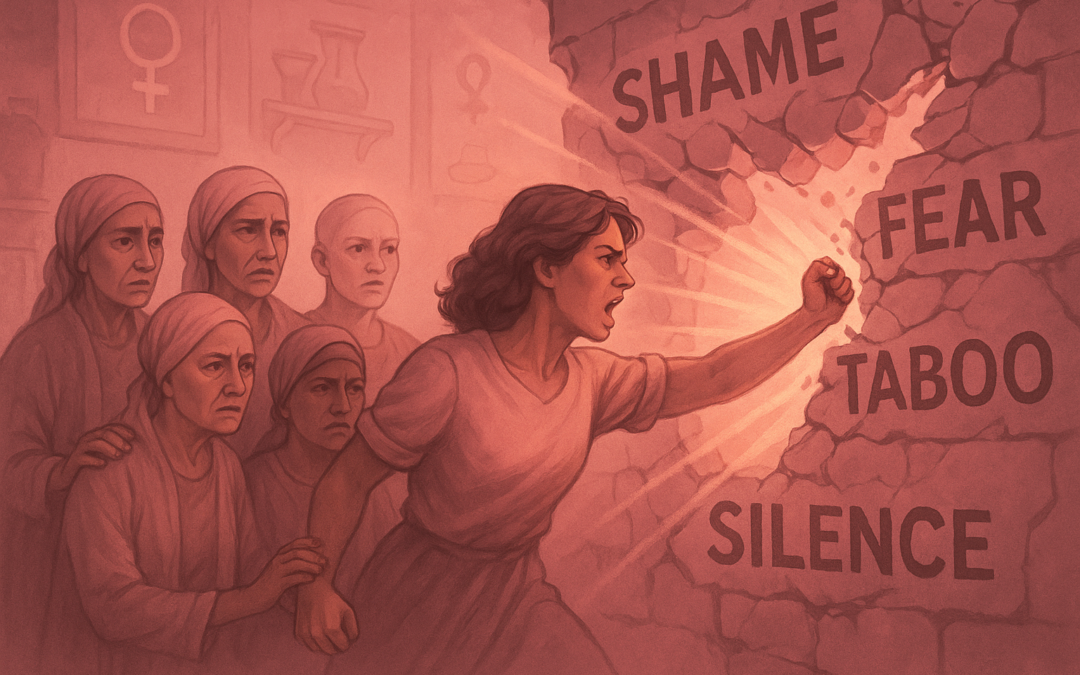Despite growing awareness about breast cancer in Pakistan, deep-rooted social norms and cultural taboos continue to delay early detection and treatment, contributing to preventable deaths among women. A multi-layered problem, the stigma around breast health is not just medical—it is deeply social, gendered, and psychological. Through focused dialogue with departments of Gender Studies and Sociology, it becomes clear that the silence around breast cancer is a reflection of broader systemic issues involving patriarchy, modesty culture, and a lack of inclusive public health narratives.
- Gendered Perceptions of Illness and the Female Body
In many societies, particularly in conservative contexts like Pakistan, the female body is viewed through a lens of modesty and shame. This cultural framing inhibits women from discussing issues related to their breasts—even in medical settings. Breast cancer, unlike many other diseases, is closely tied to a part of the body that is sexualized, stigmatized, and considered “private,” thereby making open conversations more difficult.
Public health narratives have traditionally focused on maternal health, often sidelining diseases like breast cancer unless they relate directly to childbirth or fertility. This creates an environment where women internalize shame, often seeing illness as a personal failure or spiritual punishment. Studies suggest that women are more likely than men to feel guilt, fear of social exclusion, or embarrassment about disease, especially when related to reproductive health.
- Patriarchy and Cultural Taboos
The role of patriarchy cannot be overstated when it comes to healthcare access. In many households, men control finances and decisions around when and where women can seek medical treatment. A woman may delay visiting a doctor until her symptoms are severe, either because she fears social consequences or because she lacks permission or resources.
This delay in care is compounded by cultural taboos that discourage women from even acknowledging breast-related issues. Many families still believe that discussing breast cancer openly is inappropriate or dishonorable. The consequence? Late-stage diagnoses, lower survival rates, and a deepening public health crisis.
To challenge this, awareness efforts must be sensitive yet assertive—calling out harmful norms while engaging communities in constructive dialogue. Campaigns should not alienate; they must educate and humanize, creating safe spaces for conversation and understanding.
- Advocacy Through Feminist and Community-Based Approaches
Feminist approaches to public health emphasize the importance of agency, equity, and justice. In the case of breast cancer, this means advocating for a woman’s right to health information, diagnosis, and treatment—without shame, delay, or discrimination.
Community-based interventions—particularly those led by women—have shown promise in shifting harmful gender norms. For example, local awareness groups, survivor-led outreach, and female-led counseling sessions have all proven effective in encouraging early detection behaviors. When survivors share their stories, the fear factor is replaced with resilience and hope.
Students and scholars from gender studies and sociology can also play a vital role by engaging in action research, building campaigns grounded in cultural understanding, and challenging patriarchal structures within their own institutions and communities.
- Inclusive Narratives and Survivorship
Breast cancer campaigns often rely on medical or pink-themed imagery, which can feel distant or even alienating to marginalized groups. Real inclusion means representing all women: rural and urban, young and old, rich and poor. Survivorship needs to be portrayed not just as a triumph of medicine, but as a story of strength, resilience, and community.
Survivors face unique barriers, such as being excluded from social events, facing blame or pity, or being deemed “less of a woman” post-treatment. By platforming their voices—in media, classrooms, and policy discussions—we not only normalize the reality of breast cancer but celebrate the lives beyond diagnosis.
Inclusive storytelling must extend to gender-diverse individuals, many of whom face additional discrimination when accessing healthcare. A truly inclusive narrative ensures that every individual, regardless of gender identity or socioeconomic background, sees themselves in breast cancer advocacy.
Cross-Cutting Solutions and Institutional Roles
The language of campaigns matters. Fear-based messaging may capture attention but often backfires, reinforcing silence and shame. Instead, breast cancer communication should be rooted in empowerment, cultural empathy, and medically accurate storytelling. Imagery should reflect diversity, dignity, and strength—not just ribbons and slogans.
Universities can be powerful catalysts for change. By integrating breast health into gender studies curricula, hosting regular seminars, and organizing peer-led campaigns, academic institutions can begin normalizing conversations around women’s health. Departments of Gender Studies and Sociology are uniquely positioned to lead these dialogues, blending theory with advocacy to reshape public discourse.
Breaking the silence around breast cancer is about more than awareness—it’s about challenging systems of inequality, reshaping cultural narratives, and empowering women to take charge of their health without fear or shame. At Pink Ribbon Pakistan, we believe that real change happens when conversations are inclusive, informed, and led by those who care enough to question the norms.
Together—with educators, students, survivors, and community leaders—we can build a society where breast health is no longer hidden in whispers but discussed with courage, clarity, and compassion.

